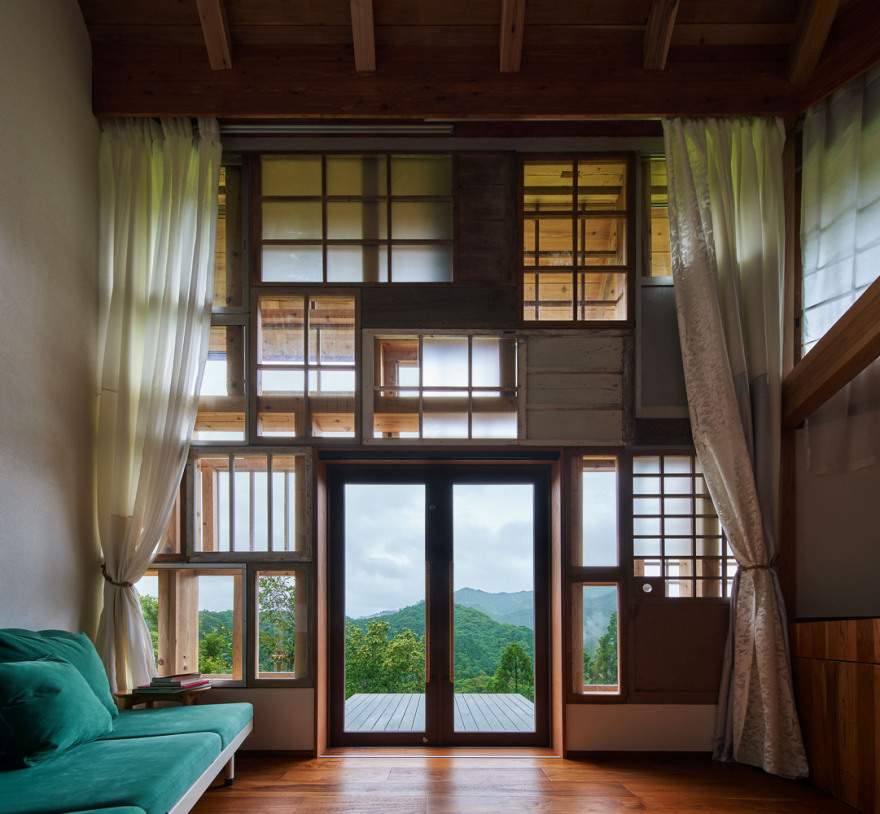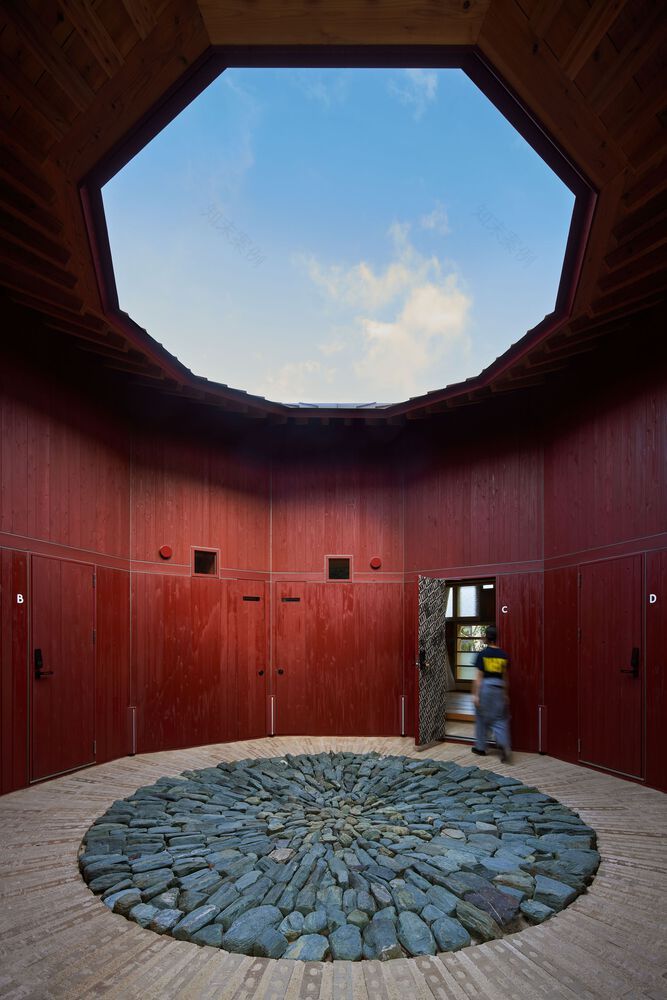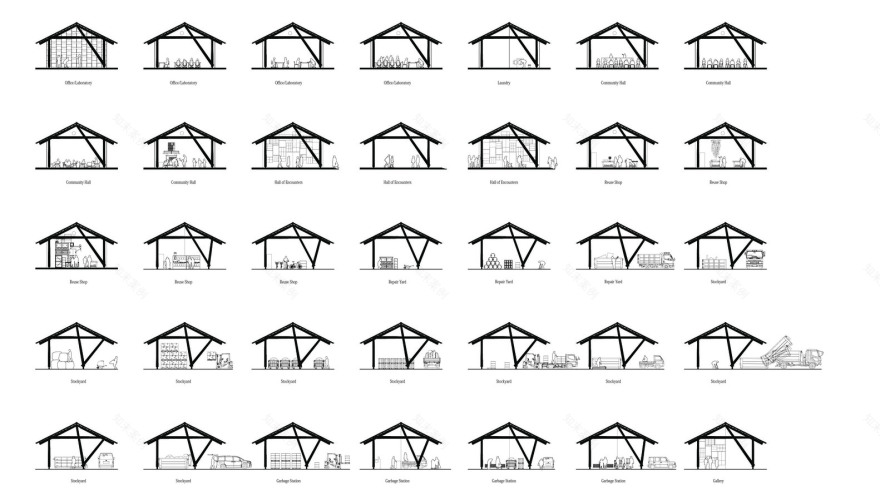查看完整案例

收藏

下载

翻译
The town of
in Tokushima Prefecture aims to become a sustainable recycling community and has pledged to produce zero waste. Its recycling rate has already reached 80% by sorting trash into 45 categories, with used items displayed like a store at the recycling center. As mass-production, mass-consumption society shows signs of an impasse, there are high anticipations both at home and abroad for this movement.
The project consists of a plan for the core facility of this town, with multiple functions including a trash sorting/collection station and recycling center, as well as a center that promotes and teaches about the zero-waste movement. We conceived architecture that will not produce waste, could be sorted, and could eventually be downsized.
Our first step was to use cedar wood that could be harvested locally to recycle forestry resources while minimizing the carbon footprint. We decided to use logs in their original form because rotary-cut cedar would produce wood waste. Considering that the declining population and technological advances will eventually reduce trash volume, we repeated the cross-section of the timber-framed structure so it could be easily downsized. The finish is conspicuous, with bolts used for the joints so that local contractors can handle construction/maintenance, and sorting is simplified when demolished.
We viewed discarded fittings and farming tools etc. as resources, recycling them as the exterior and fixtures of the building. We also used glass bottle cullets as terrazzo aggregate. At the recycling center with a wall covered with stacked bureaus, a grandmother may point to her former bridal chest of drawers and share family history with her grandchild.
By visualizing and making maximum use of
’s resources and not considering them to be “waste,” we begin to value things and become aware of the richness of the local lifestyle. The identity of the town is embodied in this architecture so that town residents can hold pride in their way of living.
客服
消息
收藏
下载
最近




































